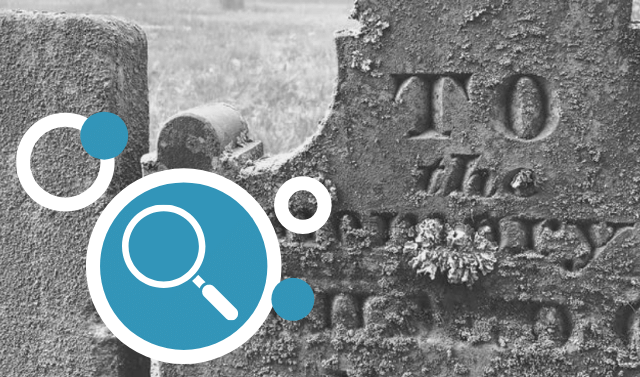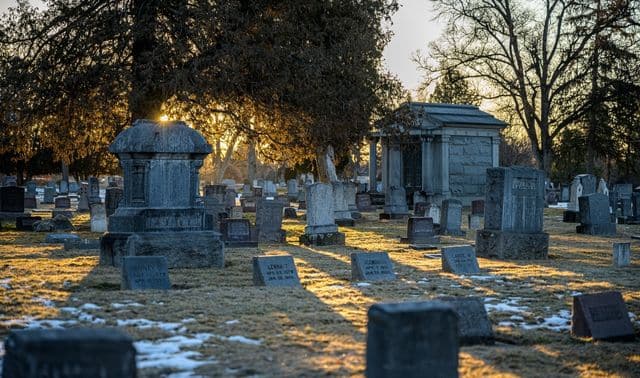Sign up for the Family Tree Newsletter! Plus, you’ll receive our 10 Essential Genealogy Research Forms PDF as a special thank you.
Get Your Free Genealogy Forms
"*" indicates required fields

It’s inevitable. Every time we share an article about cemeteries in Family Tree Magazine, a well-intentioned reader sends us an email to extol the virtues of shaving cream as a tombstone cleaner.
The problem? Preservation gurus agree that the acids and chemicals in shaving cream hasten gravestones’ deterioration. So these well-meaning folks’ efforts ultimately could be more harmful than helpful.
This might come as a shock. After all, conflicting information abounds about the safety of shaving cream. For every cautionary article or website, another encourages genealogists to lather up. So I may be advocating an unpopular view in reiterating this magazine’s stance on shaving cream: Don’t use it on gravestones.
The cardinal rule of preservation is to do nothing harmful or irreversible. But according to the Association of Gravestone Studies, shaving-cream chemicals never fully wash away. Further, as explained in Saving Graves’ article “Shaving Cream: Right or Wrong?”, those lingering soaps, mineral oils, and fatty alcohols feed “microscopic organisms, fungi, mosses, etc. The growth of such organisms … causes expansive forces [that] will gradually cause microscopic particles of the stone to be flaked off. These enlarged microscopic pores can also collect moisture in wet, freezing weather, and the freezing action causes microscopic fractures.”
It’s true, as shaving cream supporters argue, that damage won’t happen for many years — and that simply being outdoors also puts tombstones in danger. We understand genealogists’ motivations for using shaving cream. But you wouldn’t bleach an old deed book to “restore” its original appearance. So why not treat tombstones the same way? Prevent deterioration by using the safer alternatives described at Saving Graves.
Tombstones are historical artifacts. Whether those markers memorialize your ancestors or someone else’s, future generations have just as much a right to enjoy them as you do. Don’t risk depriving tomorrow’s family historians of the opportunity.
From the June 2006 issue of Family Tree Magazine.






